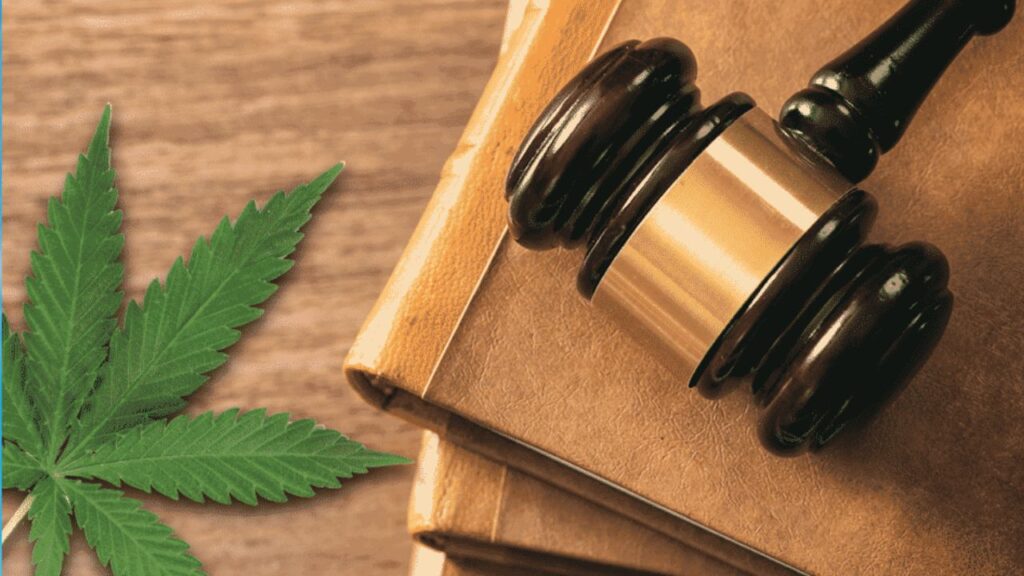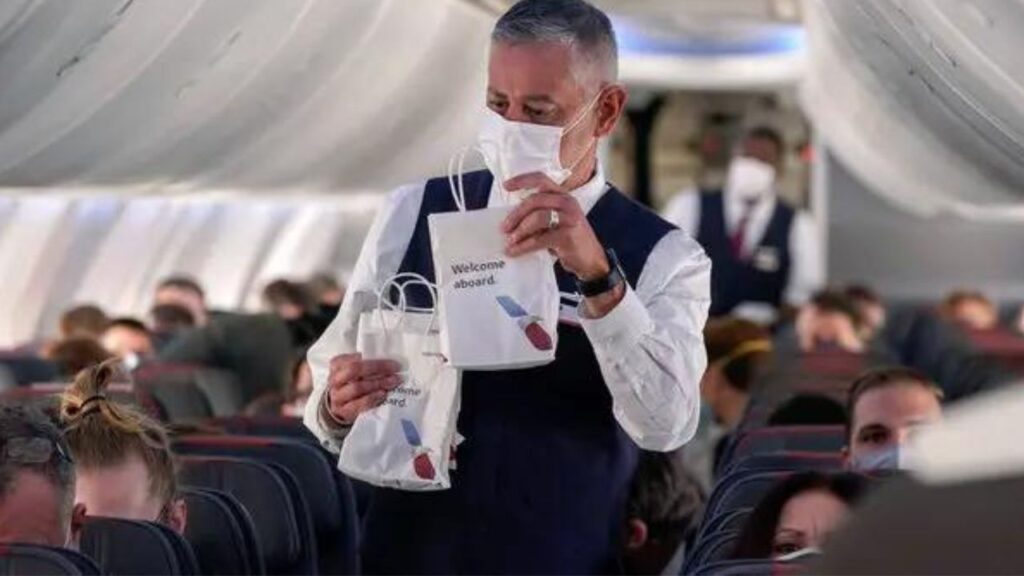Traveling can be a stressful experience, especially if you need clarification about the rules and regulations regarding what you can and cannot bring with you on a flight.
Can You Carry CBD Oil in Your Carry-On While Flying? This concern becomes even more pertinent when you consider traveling with CBD oil, a popular natural remedy that has gained significant traction in recent years.
So, flying with CBD oil in your carry-on is more complex than a simple yes or no, as it depends on various factors, including the type of CBD oil, its legality, and the airline’s specific rules. In this comprehensive guide, we’ll explore the ins and outs of ensuring you have a hassle-free travel experience with CBD oil..
CBD Oil
Before delving into the regulations surrounding flying with CBD oil, it’s essential to understand what CBD oil is. Cannabidiol, sometimes known as CBD, is a non-psychoactive substance found in the cannabis plant. Unlike THC (tetrahydrocannabinol), CBD doesn’t produce the “high” associated with marijuana use.
Instead, it’s known for its potential therapeutic benefits, such as alleviating pain, reducing CBD oil derived from anxiety, and promoting relaxation.
hemp plant, a variety of cannabis that contains less than 0.3% THC. This low THC content distinguishes hemp from marijuana, making hemp-derived CBD products legal everywhere. However, the legality of CBD can vary from one location to another, adding complexity to the question of flying with CBD oil.
The Legal Status of CBD
 Can You Fly with CBD Oil in Your Carry-On? CBD’s legal status is crucial when determining whether you can fly with it. While the 2018 Farm Bill in the United States legalized the production and sale of hemp-derived CBD products, the situation remains nuanced.
Can You Fly with CBD Oil in Your Carry-On? CBD’s legal status is crucial when determining whether you can fly with it. While the 2018 Farm Bill in the United States legalized the production and sale of hemp-derived CBD products, the situation remains nuanced.
The bill allows the sale of CBD products with a THC content of 0.3% or less on a federal level. However, individual states may have their own laws and regulations regarding CBD, which can sometimes conflict with federal law.
Before packing CBD oil for your trip, research the laws in your departure and arrival locations. Some states have stricter regulations, so it’s essential to be aware of any restrictions or requirements. In some cases, you may need to provide proof that your CBD oil meets the legal criteria.
TSA’s Stance On CBD Oil
The Transportation Security Administration (TSA) handles security at American airports. The TSA’s primary focus is on ensuring the safety of passengers and preventing any potential threats from being brought onto an aircraft. Regarding CBD oil, the TSA has a permissive stance, but there are some important guidelines to follow.
As of my last knowledge update in September 2021, the TSA’s official stance is that you can bring CBD oil in your carry-on bag or personal item. Here are some key points to
Keep in Mind When Traveling With CBD Oil:
Check the THC Content:
Ensure your CBD oil contains less than 0.3% THC, as this is the legal limit according to federal law. Products exceeding this limit could be confiscated.
Pack it Properly:
Hemp plants, which have trace quantities of THC (0.3% or less in the US), are commonly used to produce CBD.
Declare if Necessary:
While you are not required to declare CBD oil to TSA agents, it’s a good practice to inform them if you have it in your carry-on bag during the security screening process. This transparency helps avoid any confusion or delays.
International Travel:
If you’re flying internationally, be aware that the rules and regulations regarding CBD oil can differ significantly from one country to another. Researching and understanding your destination country’s laws before traveling is essential.
Labeling:
Ensure your CBD oil is clearly labeled with its ingredients and content. This can be helpful in case TSA agents have questions about the product.
Remember that the TSA’s guidelines may change over time, so you must check their official website or contact them directly before your trip for the most up-to-date information.
Airline Policies
 Can You Fly with CBD Oil in Your Carry-On? While the TSA allows you to fly with CBD oil within certain limits, individual airlines may have their policies and restrictions. It’s crucial to check with your specific airline to understand their rules regarding CBD oil. Some airlines may have stricter regulations or may even prohibit CBD oil altogether.
Can You Fly with CBD Oil in Your Carry-On? While the TSA allows you to fly with CBD oil within certain limits, individual airlines may have their policies and restrictions. It’s crucial to check with your specific airline to understand their rules regarding CBD oil. Some airlines may have stricter regulations or may even prohibit CBD oil altogether.
When contacting your airline, inquire about their specific rules for carrying CBD oil in your carry-on or checked baggage. It’s better to be informed beforehand to avoid potential issues.
International Travel Considerations
If you’re planning to travel internationally with CBD oil, there are additional factors to consider. CBD’s legal status varies widely from country to country, and some countries have strict regulations or even outright bans on CBD products. Here are some tips for international travelers:
Research Destination Laws:
Before traveling, thoroughly research the laws and regulations regarding CBD in your destination country. Even if you’re flying with a hemp-derived CBD product legal in the United States, it may not be permitted in other countries.
Documentation:
If CBD is legal at your destination, consider carrying documentation that proves your CBD oil’s legality and compliance with local regulations. Depending on the country’s requirements, this might include a certificate of analysis (COA) from the manufacturer or a doctor’s prescription.
Language Barrier:
If you’re traveling to a country where you don’t speak the language, having essential information about your CBD oil translated into the local is a good idea language. This can help you communicate with authorities if any questions arise.
Customs Declarations:
When you arrive at your international destination, be prepared to declare any CBD products you have to customs authorities if required. Failure to do so could result in legal consequences.
Risks And Potential Issues
While it’s possible to fly with CBD oil following the proper guidelines, there are still.
Here are some dangers and problems you should be aware of:
Confiscation:
If your CBD oil doesn’t meet the legal requirements or fails to follow TSA or airline rules, it could be confiscated, and you may face additional scrutiny.
Changing Regulations:
CBD regulations can change, both domestically and internationally. What was allowed on one trip may not be permitted on another. Stay updated on current laws and regulations to avoid surprises.
Local Laws:
Even if you can carry CBD oil, be aware of local laws at your destination. Some places may have strict enforcement or differing regulations, which could lead to legal issues.
Misidentification:
TSA agents or customs officials may not always be familiar with CBD products. They might mistake CBD oil for a marijuana product, leading to complications. Being well-prepared and knowledgeable can help mitigate this risk.
How Do I Best Use CBD?
The best way to use CBD depends on your specific needs and preferences. CBD comes in various forms, including oils, capsules, edibles, topicals, and more. Here are some common methods:
Sublingual (Under the tongue):
CBD oil drops are placed under the tongue, allowing quick absorption into the bloodstream.
Oral (Capsules, edibles):
CBD can be ingested through capsules, gummies, or other edibles.
Topical:
Creams, lotions, and CBD balms are applied directly to the skin for localized relief.
Inhalation:
Some users prefer vaping or smoking CBD-rich strains of hemp.
Dosage:
Start with a low dose and gradually increase until you achieve the desired effects. Speaking with a medical expert to discover the ideal dosage for your unique needs would be best.
Where IS Upstate Elevator Supply Co. Hemp Grown?
 As of my last knowledge update in September 2021, I need specific information about the sourcing practices of Upstate Elevator Supply Co.
As of my last knowledge update in September 2021, I need specific information about the sourcing practices of Upstate Elevator Supply Co.
For hemp. Hemp cultivation practices can vary from company to company, and it’s essential to research the company’s website or contact them directly for the most up-to-date information on their hemp sourcing and growing locations.
Conclusion
In conclusion, Can You Fly with CBD Oil in Your Carry-On? traveling with CBD oil in your carry-on is generally possible if you follow the proper guidelines and know the legal and regulatory landscape at departure and arrival locations.
Start by researching the laws in your destination, ensuring your CBD oil complies with the legal THC limit, and following the TSA’s rules for carrying liquids and gels. Additionally, check with your airline for any specific policies they may have.
Continue generating
FAQ:
Is CBD Psychoactive, And Will It Make You High?
CBD (cannabidiol) is not psychoactive, and it does not produce the “high” associated with THC (tetrahydrocannabinol). Typically, hemp plants—which in the US have THC concentrations of 0.3% or less—make CBD.
These minimal THC levels are not sufficient to induce psychoactive effects.
How IS CBD Concentrate Made?
CBD concentrate is typically produced through an extraction process that isolates CBD from hemp plants.
The general steps include harvesting mature hemp plants, drying them to reduce moisture content, extracting CBD using methods like CO2 extraction or ethanol extraction, purifying the extracted CBD to remove impurities, concentrating it to increase potency, and often testing for quality and potency.
The final concentrate can then be formulated into various CBD products. Please note that specific methods may vary among manufacturers, so selecting reputable sources for quality and safety is important.
Always stay informed about the legal status of CBD in your region, and consult with a healthcare professional for personalized guidance on CBD usage.




